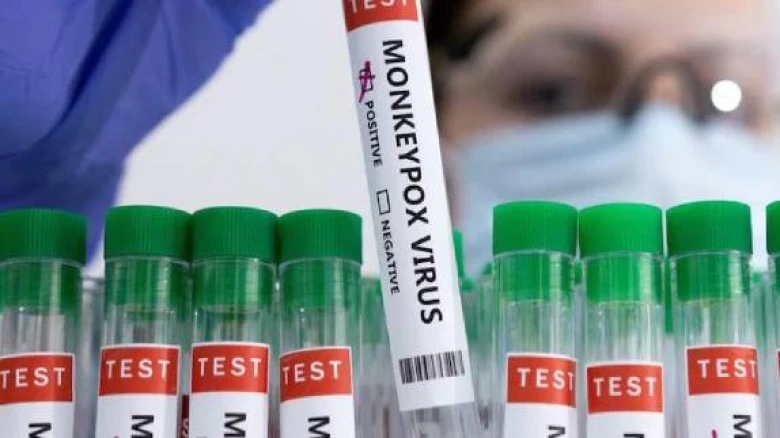Regional

If nations, communities, and people educate themselves, take the risks seriously, and take the necessary precautions to stop transmission and protect vulnerable groups, this outbreak can be stopped, according to Dr. Tedros.
color:black;mso-themecolor:text1;letter-spacing:-.75pt;mso-bidi-font-weight:
bold">Digital Desk:
color:black;mso-themecolor:text1">According to the World Health Organization,
widespread vaccination against monkeypox is not advised. This comes after more
than 18,000 cases from 78 different countries have been documented.
color:black;mso-themecolor:text1">"The WHO advises targeted vaccination
for those who have come into contact with someone who has monkeypox and for
those who are at high risk of exposure, such as healthcare professionals, some
lab workers, and people who have had several sexual partners. We do not
currently advise widespread monkeypox immunization, said WHO Director-General
Tedros Adhanom Ghebreyesus on Wednesday.
This
occurs just days after the global health organization deemed monkeypox to be an
emergency.
More
than 18 thousand cases of monkeypox have now been reported to WHO from 78
countries, with more than 70% of cases reported from the European region and
25% from the region of the Americas, according to a statement released by WHO
on Wednesday.
The International Health Organisation noted that five documented fatalities have
occurred to date, and 10% of cases are hospitalized to treat the disease's
discomfort.
If
nations, communities, and people educate themselves, take the risks seriously,
and take the necessary precautions to stop transmission and protect vulnerable
groups, this outbreak can be stopped, according to Dr. Tedros.
More
than 18 thousand cases of monkeypox have now been reported to WHO from 78
countries, with more than 70% of cases reported from the European region and
25% from the region of the Americas, according to a statement released by WHO
on Wednesday.
The
international health organization noted that five documented fatalities have
occurred to date, and 10% of cases are hospitalized to treat the disease's
discomfort.
If
nations, communities, and people educate themselves, take the risks seriously,
and take the necessary precautions to stop transmission and protect vulnerable
groups, this outbreak can be stopped, according to Dr. Tedros.WHO noted that
several countries with monkeypox cases have secured supplies of the MVA-BN
vaccine, adding that the global health body is in contact with other countries
to understand their supply needs.
Dr.
Tedros Adhanom Ghebreyesus stated, "We must provide equitable access to
vaccinations for all persons and communities affected by monkeypox, in all
countries, and in all areas."
The
WHO director stressed that while vaccinations will be a crucial tool, risk
reduction, surveillance, and diagnosis are still essential for halting the
outbreak and preventing further spread.
Risky
Stigma and Discrimination: Who
The
WHO stated that stigma and prejudice "may be as harmful as any infection,
and can fuel the outbreak" in response to news that the majority of cases
had been identified in men who have had intercourse with other men.
According
to the WHO, "misinformation and disinformation may spread quickly online
as we have seen with Covid-19. As a result, we call on social media platforms, tech
firms, and news organizations to engage with us to avoid and fight harmful
information."
The
international health organization added that although 98% of cases to date have
involved males who have had sex with men, anyone exposed can have monkeypox. In
order to lower the danger of transmission to other susceptible groups, such as
children, pregnant women, and immunosuppressed people, WHO advised that
governments take action.
"Reducing
the danger of exposure is the most effective approach to do it. For males who
have sex with men, this currently entails cutting back on the number of
partners, contemplating intercourse with new partners, and exchanging contact
information with any new partners to enable follow-up if necessary, according
to the WHO.
Leave A Comment